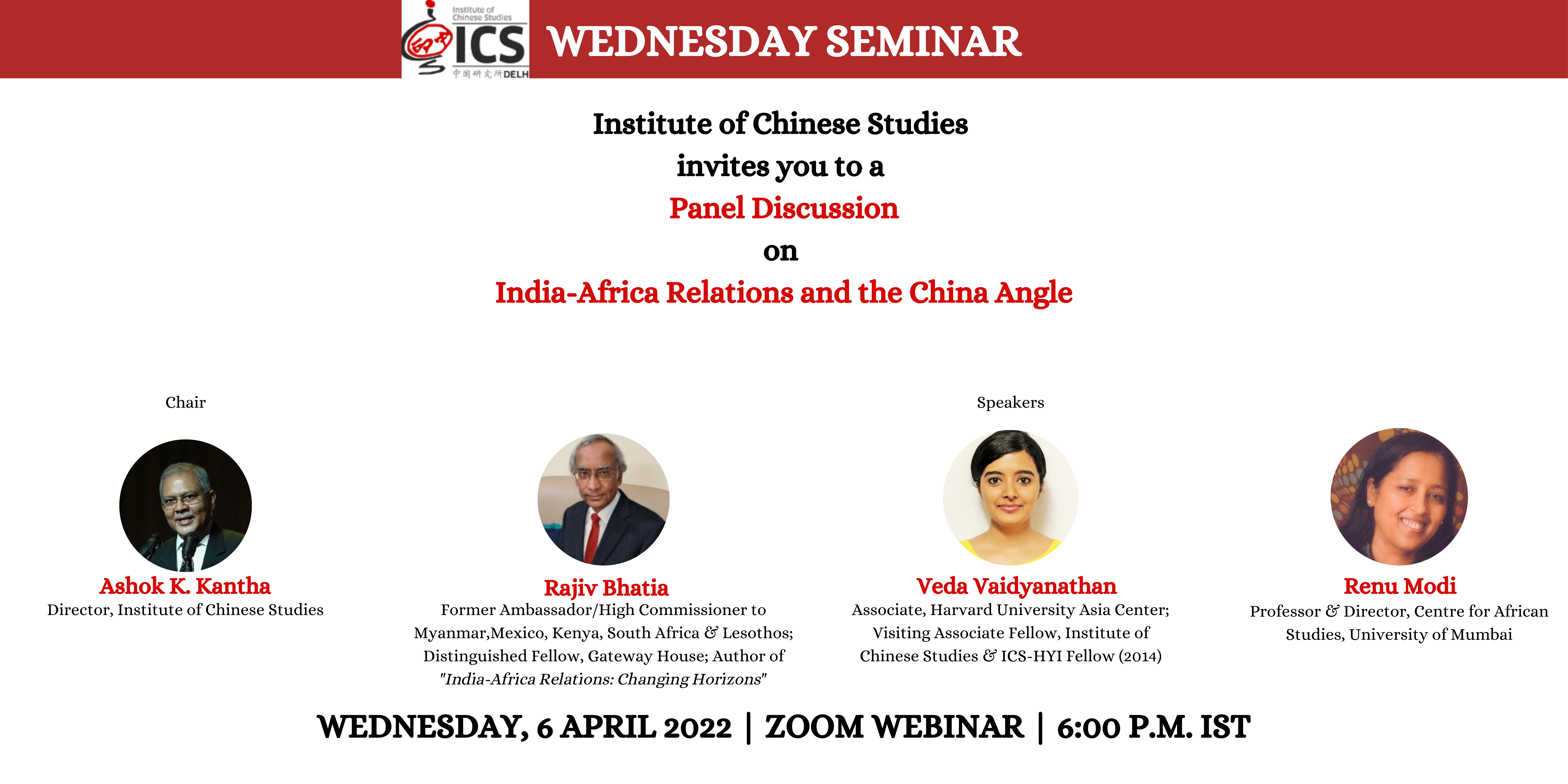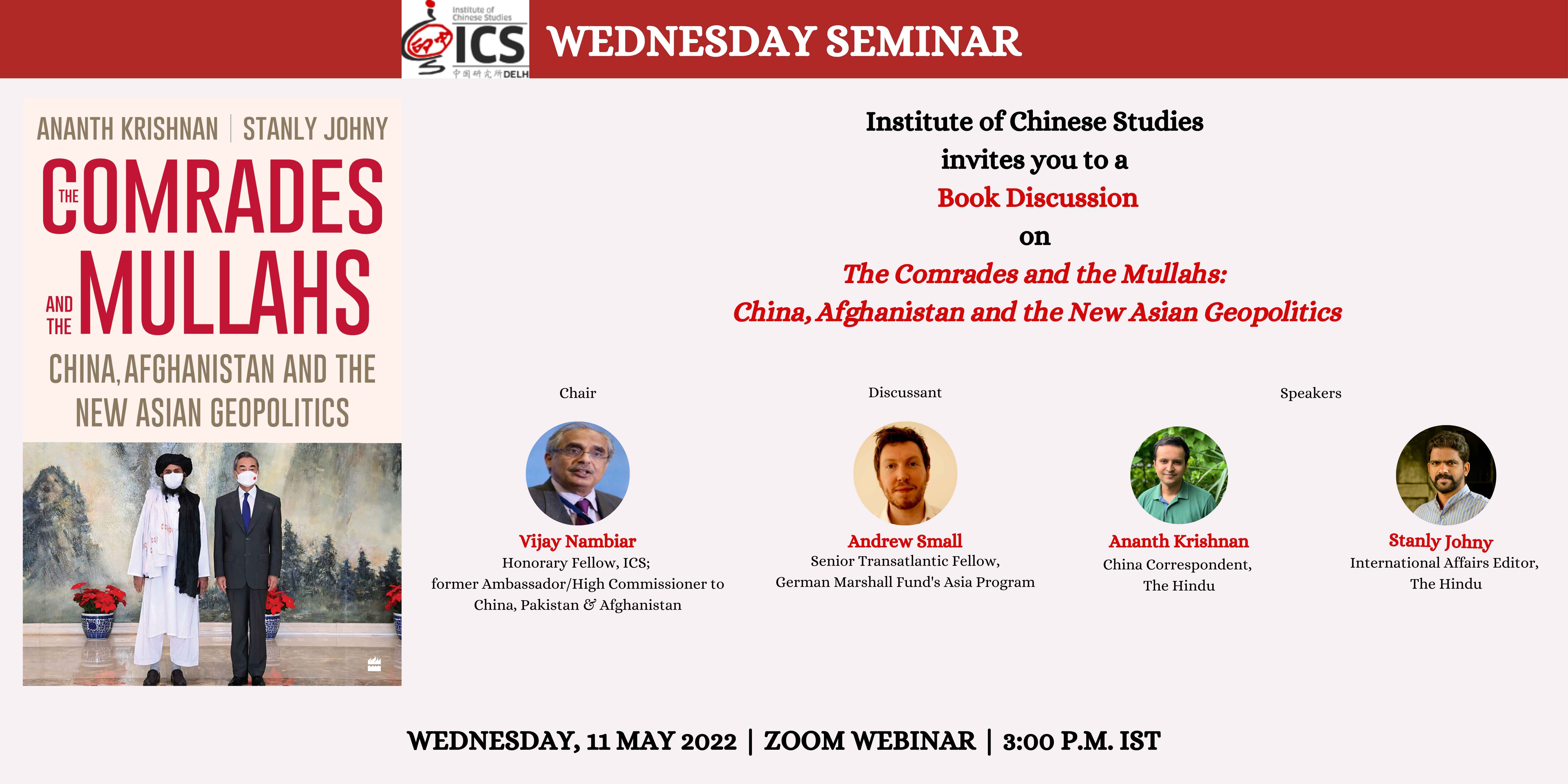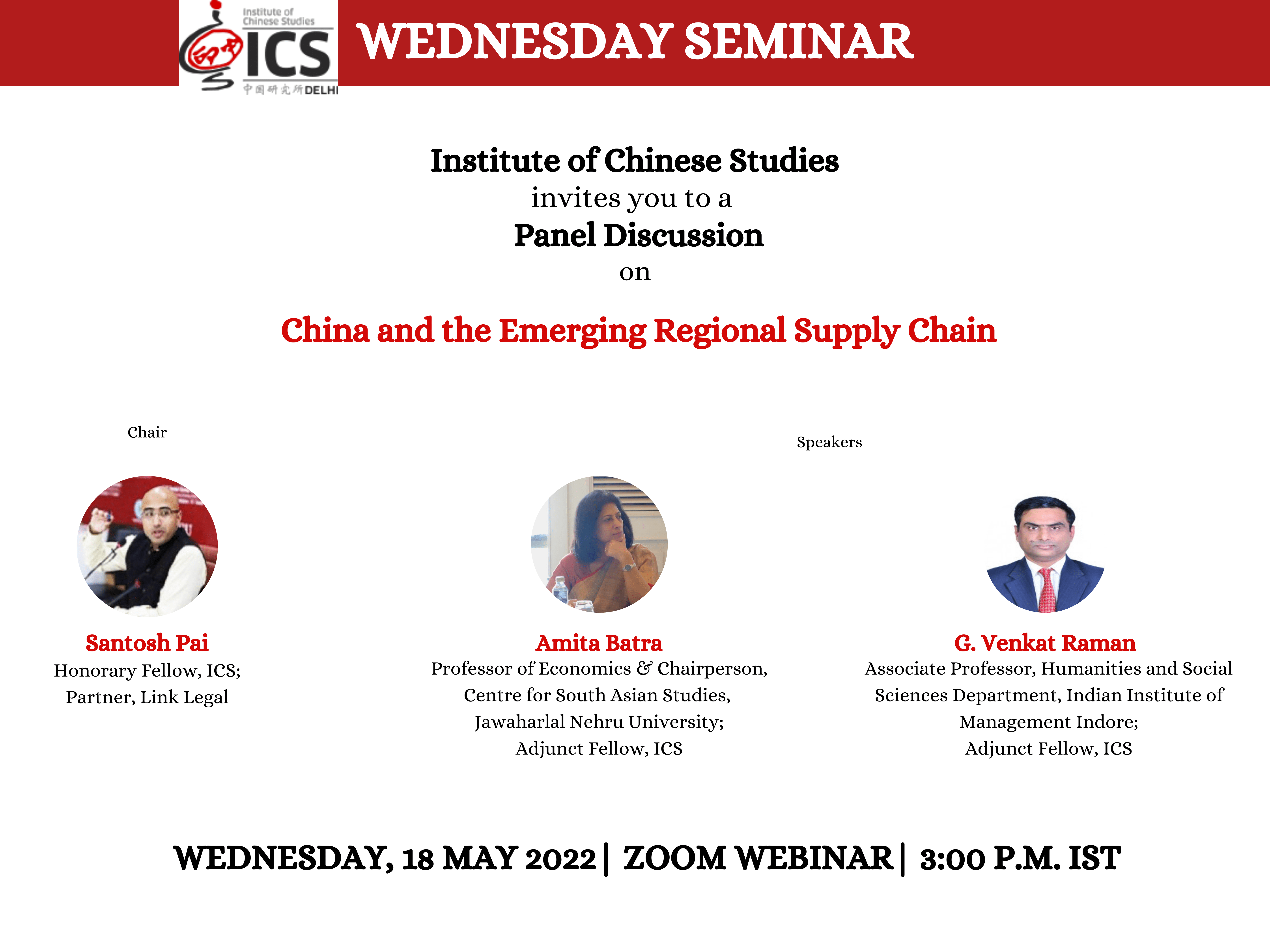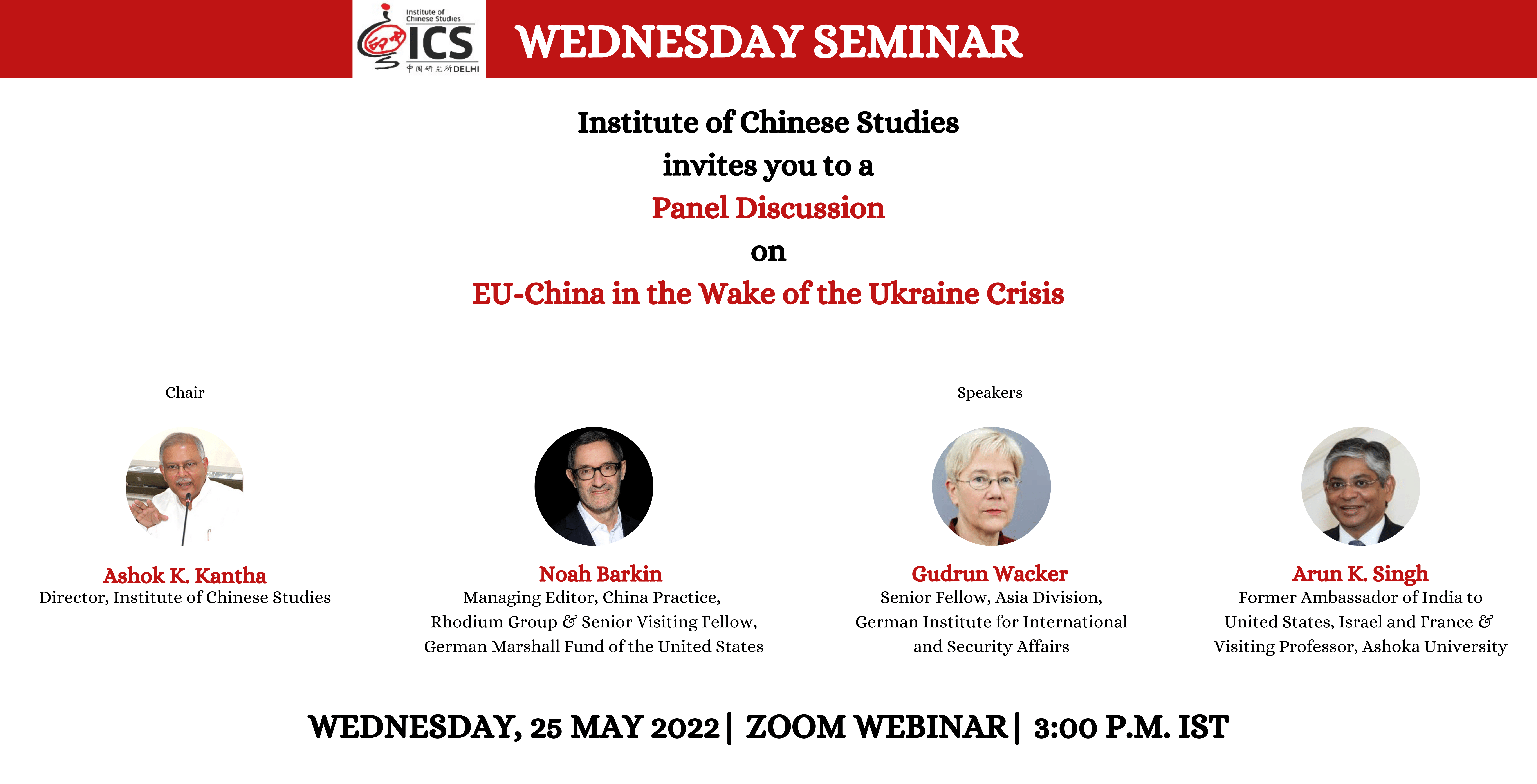 |
| |
| Two Years of Crisis in Eastern Ladakh: The Way Ahead |
|
Amb. Gautam Bambawale, former Ambassador of India to China, Pakistan and Bhutan; Lt. Gen. DS Hooda (Retd.), PVSM, UYSM, AVSM, VSM and Bar, ADC, former General Officer, Commanding-in-Chief, Northern Command, Indian Army; Senior Col. Zhou Bo (Retd.), former Deputy Director General, General Planning Bureau, Foreign Affairs Office, Ministry of National Defense of the People’s Republic of China; Mr. Sushant Singh, Senior Fellow, Centre for Policy Research.
Wednesday Seminar | Zoom Webinar | 4 May 2022
|
| |
|
5 May 2022 marks the second anniversary of the current crisis in Eastern Ladakh, the deadliest, since 1962 and follows a series of such crises since 2013. On 5 May 2020, the first clash occurred resulting in injuries to several soldiers on both sides. This was followed by another major clash on the night of 15-16 June 2020 resulting in 20 Indian and four PLA soldiers getting killed in action. While the Chinese views over the current situation is ambiguous, the Indian side believes that the crisis was due to a deliberate action by the Chinese side. Despite several rounds of talks at the national, diplomatic and military levels over the past two years, the current crisis shows no sign of resolution. Existing Confidence Building Mechanisms have neither been able to prevent nor aid in resolving the current crisis. The panel discussion looked at the underlying causes of the crisis, developments over the past two years, the Chinese perspective and way ahead.
|
| Watch> |
|
|
 |
| |
| Book Discussion: The Comrades and the Mullahs: China, Afghanistan and the New Asian Geopolitics |
|
Mr. Ananth Krishnan, China Correspondent, The Hindu; Dr. Stanly Johny, International Affairs Editor, The Hindu.
Wednesday Seminar | Zoom Webinar | 11 May 2022
|
| |
|
The withdrawal of the United States from Afghanistan has left a lasting impact on both Afghanistan’s future and on Asian geopolitics. It has also brought China into focus. "The Comrades and the Mullahs" traces the emergence of China as a key player in Afghanistan and the evolution of China’s Afghan policy especially with respect to its relations with the Taliban. Beijing's dominant role in Afghanistan’s future is a potentially game-changing development in Asian geopolitics, even if questions remain about the former's appetite to step in to fill the void and the limits of its ambitions. In this talk, the authors Ananth Krishnan and Stanly Johny discussed their book, the situation in Afghanistan, what Beijing’s interests are and the drivers of its foreign policy.
|
| Read More> |
|
|
 |
| |
| China and the Emerging Regional Supply Chain |
|
Prof. Amita Batra, Professor of Economics and Chairperson, Centre for South Asian Studies, School of International Studies, Jawaharlal Nehru University; Prof. G. Venkat Raman, Professor, Humanities and Social Sciences Department, Indian Institute of Management Indore.
Wednesday Seminar | Zoom Webinar |18 May 2022
|
| |
|
The ongoing trade war between the United States and China and the Covid-19 pandemic have highlighted the vulnerability of complex global supply chains to ongoing structural changes in the global economy resulting from rising labour costs, automation, protectionism and geopolitical tensions like the Ukraine crisis. These developments have prompted a critical re-evaluation of existing approaches to global sourcing and manufacturing activities to increase supply chain resilience and reduce external risks. While the rise of regional trade agreements is partly a response to desire for a more stable business environment, it also risks creating an unwieldy set of international trade rules that undercut rather than facilitate the ease of doing business transnationally. This seminar discussed some pressing questions such as, in the context of uncertainties generated by recent developments, what has been China's response as a major trading power? Further, what are the emerging supply chains sustaining the global trade and what can be done to ensure the smooth functioning of supply chains and increase their ability to withstand the impact of future global crises?
|
| Watch> |
|
| |
 |
| |
| China-EU Relations in the Wake of the Ukraine Crisis |
|
Mr. Noah Barkin, Managing Editor, China Practice, Rhodium Group; Dr. Gudrun Wacker, Senior Fellow, Asia Division, German Institute for International and Security Affairs; Amb. Arun K. Singh, former Ambassador of India to United States, France and Israel.
Wednesday Seminar | Zoom Webinar |25 May 2022
|
| |
|
European Union (EU)-China ties have been strained in the last few years with ‘systemic rivalry’ becoming the defining prism of the relationship in the context of the COVID-19 pandemic, US-China trade war and the closeness between Russia and China. Especially since the war in Ukraine, the EU and the United States have moved closer on tougher policies towards Beijing. China’s purported position of neutrality is being seen as tacit support of Russia and the joint statement inked by Putin and Xi which contained a critique of NATO has raised many eyebrows. There can now be seen a new found sense of leadership in Brussels after using its economic muscles through sanctions and provision of military aid to Ukraine. Moving away from classical diplomatic language, the EU is taking a tougher stance on China even as the considerable economic and trade relations continue. In this context, this seminar examined the evolving EU-China relations and the impact of the Ukraine crisis on redefining the transatlantic stance on China.
|
| Listen> |
|
|
|
|
|





